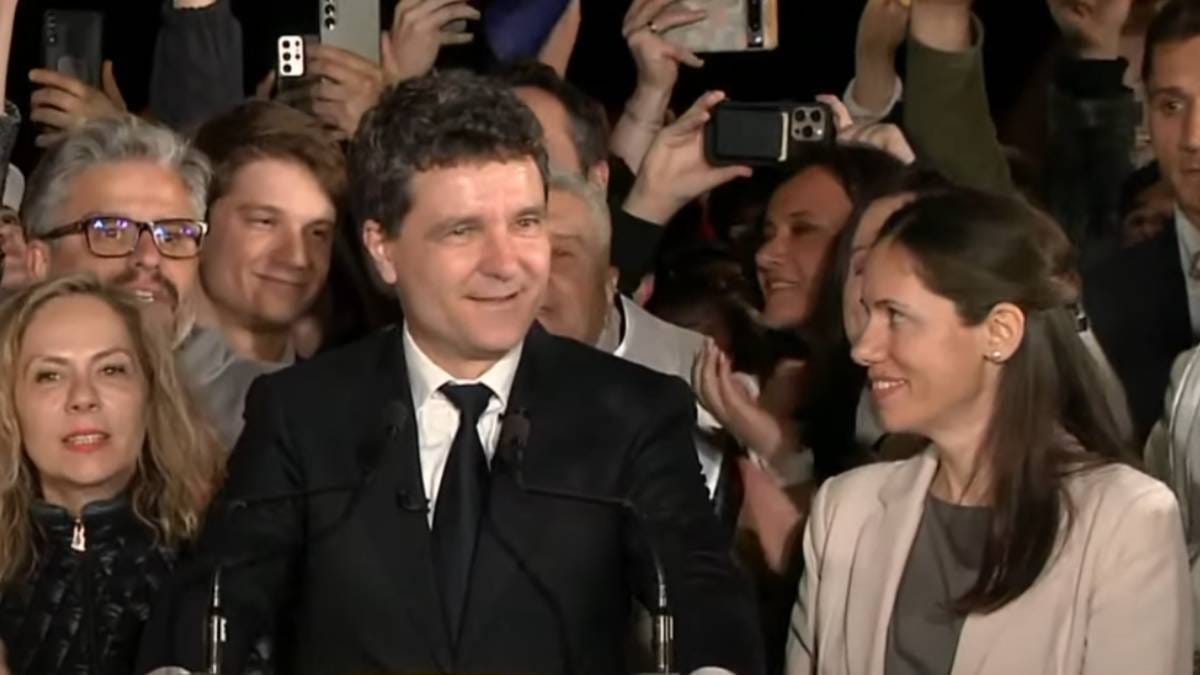What change has Romania chosen?
A brief commentary on the night after the presidential elections in Romania
Vladimir Mitev, The Bridge of Friendship, 19 May 2025
The presidential elections in Romania and the victory of Nicușor Dan show that Donald Trump has no vision and no plan for our region. The pro-MAGA candidate, George Simion, who was leading after the first round of the elections with a 2 million vote lead, chose to rely on confrontation and aggressive rhetoric, failing to convince voters that he has the experts and know-how necessary for the promised reindustrialization, nationalization of foreign companies, etc. Simion has shown that he lacks substance. He ran with the support of Italy's sovereignist prime minister and Poland's sovereignist president and thanked the US administration for restoring US visas for Romanians. Although he claimed to be a Romanian sovereignist—a patriot—he presented himself as nothing more than a puppet of forces which, according to his behavior and interpretation, seek to create conflict with the Western European core of the EU.
Romanians were tired of 1.5 years of elections and worried about the country's financial prospects. In this context, Nicușor Dan presented himself as a candidate who did not attack his opponent's voters, who sought dialogue and who had real successes as mayor of Bucharest. In addition, Nicușor Dan enjoys the support of some of Romania's most successful IT companies, protects Bucharest's cultural and natural heritage from real estate developers, and proposes reforms, anti-corruption measures, and modernization (e.g., digitization of public services). Dan resisted his opponent's aggression, won the sympathy of people who perceived Simion's behavior as tyrannical, and ultimately won the election from a very unfavorable position.
The Romanian state, or parts of it, has traditionally preferred the US to be the guarantor of its security against Russia. Leading sovereignist foreign policy analyst Dan Dungaciu warned some time ago that a moment could come when the US would withdraw from our region, leaving relations with Russia to be managed by the "Europeans." Under Trump, there were reports that the US might reduce the number of American troops in Romania. At the same time, France has also deployed troops in Romania since the beginning of the war in Ukraine. Recently, there has been criticism in the Romanian press that Romanians are succumbing to anti-Americanism under French leadership, which would be wrong. Leading journalists from the popular television station Digi24 have confirmed that relations with the US are important and traditional for Romania.
In this context, Nicușor Dan's victory is a sign of Romania's preference for Macron in France, Tusk in Poland, and the European future of Moldova and Ukraine, while Simion's candidacy was visibly anti-Macron, anti-Tusk, and skeptical of Moldova and Ukraine's European path. Nicușor Dan's victory is a victory for the core of the EU in our region. Donald Trump simply has nothing to offer. Our region is too far away from the US to receive more American investment, while Western European foreign investment here and trade with Western Europe provide most of the region's internal and international economic dynamism.
The outcome of the war in Ukraine has been a greater EU presence in our region (e.g., the full accession of Bulgaria and Romania to Schengen, the start of negotiations for Moldova and Ukraine's accession to the EU). It will be interesting to see whether Trump's presidency and his isolationism will mean a new wave of increased EU presence in our region. For Romania, this seems to mean greater influence from France and the Weimar+ group in politics.
After Polish Prime Minister Donald Tusk recently signed a security agreement with France, Polish-Romanian relations could get a boost with Nicușor Dan as president of Romania, especially if Trzaskovski, the liberal candidate, wins the Polish presidential election. At the same time, Bulgaria is awaiting its convergence reports on 4 June 2025, which will determine whether it can join the eurozone on 1 January 2026.
With the election of Nicușor Dan, Romania is reaffirming its path towards deeper integration with the core of the EU. Bulgaria and Romania are at a historic moment when their peoples can support each other in the process of social transformation and modernization, while greater synchronization is taking place in the region and with the core of the EU. The significance of Nicușor Dan's victory requires greater awareness and resonance in Bulgaria of what is happening in Romania.
Romania has chosen the change that its people prefer. Not conservative populist change, but techno-populist change. Not MAGA change, but change through affiliation with the European core. Now, the challenge for Romania's neighbors in the region is to understand, engage, and support this change, which can be mutually beneficial—if we want it to happen.






good analysis - even if not entirely objective! For once you've revealed your own inclinations!